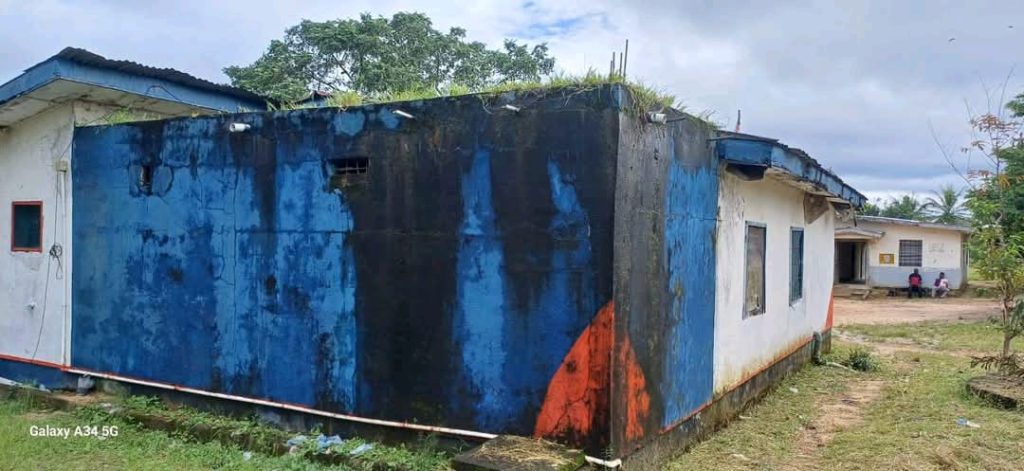The once resilient Salala District in Bong County, Liberia, a sanctuary for displaced persons during the nation’s civil war, is now grappling with a profound crisis of neglect. The district, once a symbol of hope and refuge, is now characterized by crumbling infrastructure and a pervasive sense of abandonment by the government. Vital public institutions, the cornerstones of a functioning society, are in a state of disrepair, leaving residents feeling betrayed and forgotten. This decay is not merely an inconvenience but a humanitarian crisis, threatening the very fabric of the community and jeopardizing the future of its inhabitants.
The decay is widespread, impacting every facet of life in Salala District. The Martha Tubman Senior High School, a once-proud institution and beacon of education, is now a shadow of its former self. Leaking roofs, shattered windows, and a scarcity of learning materials create a demoralizing and unsafe environment for both students and teachers. This degradation of the educational infrastructure undermines the potential of the youth and threatens to perpetuate a cycle of poverty and underdevelopment. Similarly, the Salala Community Clinic, the primary healthcare provider for thousands, is struggling to function. A lack of essential medical supplies, a shortage of qualified staff, and a deteriorating building render the clinic incapable of handling even minor health emergencies. Patients are routinely referred to distant facilities, placing an additional burden on families and further highlighting the inadequacy of local healthcare services.
This crisis extends beyond education and healthcare, impacting the very foundations of law and order within the district. The Liberia National Police Station and the Salala Magisterial Court, both essential for maintaining security and ensuring justice, are in a state of disrepair. The police station lacks basic equipment and security infrastructure, hindering its ability to effectively protect the community. The court, meanwhile, faces significant logistical and structural challenges that impede the administration of justice, potentially denying residents access to fair and timely legal processes. This systemic breakdown of essential services has left residents feeling vulnerable and disillusioned.
The residents of Salala District express a profound sense of abandonment and betrayal. Having served as a refuge for countless displaced persons during the civil war, the district’s current state of neglect feels like a cruel irony. Residents feel their sacrifices and contributions during Liberia’s darkest hour have been forgotten. Their voices, filled with frustration and anger, rise in unison, demanding immediate action from their elected officials. James Kollie, a local youth leader, articulates this sentiment, questioning how a nation can expect progress when its own citizens are deprived of fundamental rights and services. The looming 2029 elections cast a long shadow, with residents expressing their discontent with their current representative, Moima Briggs Mensah, whom they accuse of neglecting her constituents’ needs.
The residents of Salala District are not demanding luxury or extravagance; they are pleading for the basic necessities of a functional society. They yearn for clean and safe classrooms where their children can learn and thrive, for a well-equipped clinic that can provide essential healthcare, and for a functioning court system that can ensure justice and uphold the rule of law. Rebecca Mulbah, a mother of four, encapsulates the community’s plea, emphasizing that their demands are not political but humanitarian. They are not seeking special treatment, but simply the basic rights and services that every citizen deserves. This is a cry for dignity, a demand for recognition, and a plea for a better future for their children.
The deteriorating conditions in Salala District represent a critical challenge for the Liberian government. The residents’ pleas for help are directed not only at their local representative but also at the highest levels of government, including President Joseph Nyuma Boakai Sr., Vice President Jeremiah Kpan Koung, and Finance Minister Augustine Kpehe Ngafuan. The eyes of the nation are on these leaders, watching to see how they respond to this unfolding crisis. The hope in Salala may be fading, but the demand for dignity and a better life remains resolute. The government’s response will not only determine the fate of Salala District but also send a powerful message about its commitment to the well-being of all its citizens. The future of Salala, and perhaps the future of Liberia, hinges on the government’s ability to address this crisis with urgency and compassion.


